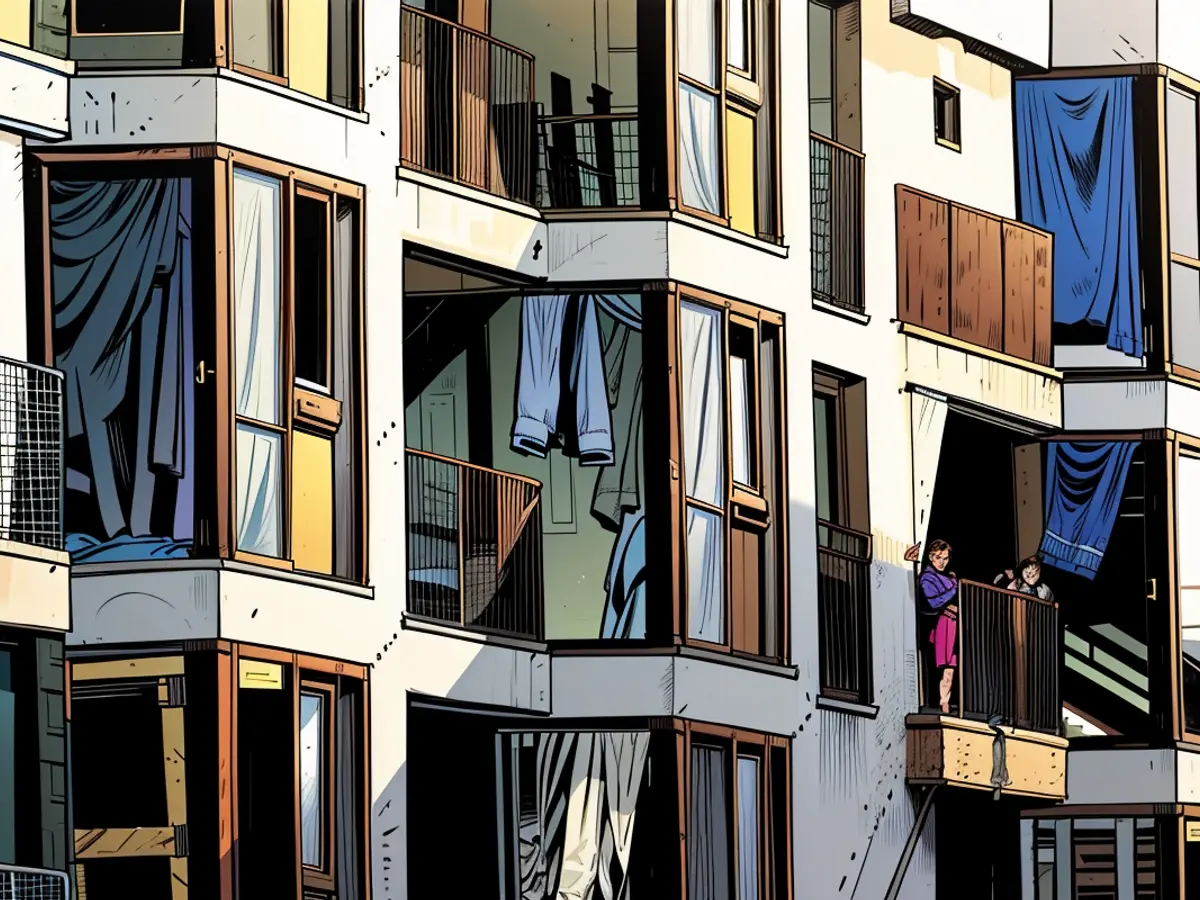Housing construction - Prognosis: only 175,000 new housing units in 2026
The Munich Ifo Institute expects a continued decline in housing construction in Germany in the coming years. The number of new buildings could therefore drop to only 175,000 in the year 2026, which would be over 40% less than the nearly 300,000 homes built in 2022. "The forecast is subject to uncertainties, but it's clear that we'll be under the 200,000 mark by 2026 at the latest," says Ifo construction expert Ludwig Dorffmeister to the German Press Agency. The Berlin coalition's goal of 400,000 new homes per year, issued at their swearing-in in 2021, is clearly moving further away.
Slump in all of Western Europe
A fundamental improvement in the coming two years is expected by no means from the Ifo expert, nor from the construction and housing industry. "Overall, I have little hope for a major turnaround," says Dorffmeister.
The malaise is not limited to Germany. The Munich economists cooperate in the Euroconstruct research network with numerous other scientists from all over Europe. According to the Euroconstruct forecast, the number of new residential construction projects in the 15 western European countries will decrease from over 1.5 million per year to 1.2 million.
Housing construction becoming more expensive
"Just like in other European countries, the housing construction sector is currently feeling the negative consequences of high inflation and interest rate hikes," says Dorffmeister. "In addition, German construction costs have completely lost control and are preventing a market recovery. Long-term, interest rates should not be used as an excuse for weak construction activity, as they are now back on a normal level."
In the coming years, Dorffmeister estimates that building will become even more expensive: "The construction cost index of the Federal Statistical Office shows that formerly rising material costs are not decreasing but rather stabilizing, while labor costs are making significant strides backwards." The collective bargaining agreement for the construction industry will lead to further cost increases in the coming years.
Building applications dwindling
A significant factor in the forecast is the decline in building applications and housing construction permits. In May, according to Federal Statistical Office figures, only 17,800 building applications were approved, which is almost 44% less than in May 2022. Many housing cooperatives and municipal companies have put new projects on ice due to the high construction costs. The reason: In order for the buildings to amortize themselves within the usual timeframe of 25 to 30 years, the companies would have to charge rents significantly above the local average in smaller towns, which no one would be willing to pay.
"Tragedy" in housing construction
The Housing Industry Association GdW recently lamented a "never-ending tragedy" in housing construction. "From a political standpoint, not enough is happening to counteract it," said GdW President Axel Gedaschko. The missing building permits of today are the "non-occurring building completions of the future." The association represents primarily the interests of housing cooperatives and municipal companies, which usually rent out their homes more affordably than private societies. According to a recent GdW survey of these member companies, two-thirds cannot build any new homes this year.
The expected development of rents is not part of the Ifo-Forecast, but the numbers do not bode well for apartment seekers. In large cities like Munich, the peculiar phenomenon has been observed for some time that house prices are falling, but rents continue to rise due to housing shortages.
The employer-affiliated economic research institute IW Cologne also sees a much higher demand for apartments than can be foreseen being built. The Institute estimates the annual new construction demand at 372,000 apartments until 2025 and 302,000 per year from 2026 to 2030. Those who plan to move or have to move in urban regions in the coming years should be prepared for a strenuous search and high costs.
- Despite the decline in housing construction in Germany, the issue is not limited to the country, as highlighted by the Munich economists who cooperate in the Euroconstruct research network with other scientists from Western Europe.
- The prognosis from the Ifo expert and the construction industry suggests a fundamental improvement in housing construction isn't expected within the next two years, with many European countries, including Germany, experiencing a decrease in new residential construction projects.
- The construction costs in Germany have significantly increased, making it challenging for the housing sector to recover. According to Dorffmeister, the construction cost index from the Federal Statistical Office shows that material costs are stabilizing, while labor costs are increasing.
- The high construction costs are one of the reasons for the decline in building applications and housing construction permits. For instance, in May 2023, only 17,800 building applications were approved, which is almost 44% less than in May 2022.
- The Housing Industry Association GdW in Bavaria has recently lamented a "never-ending tragedy" in housing construction, with many housing cooperatives and municipal companies putting new projects on hold due to high construction costs.
- The German Federation of Housing and Real Estate Companies (GdW) has warned that the missing building permits today could lead to the "non-occurring building completions of the future," making it increasingly challenging for apartment seekers to find affordable housing in urban regions.







